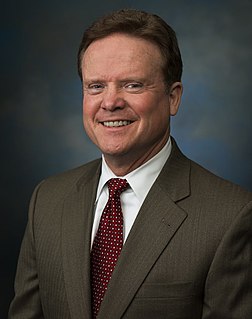A Quote by Barack Obama
If you hear what people had to say about Abraham Lincoln or what they had to say about FDR, or what they had to say about Ronald Reagan when he first came in and was trying to change our approach to government, that elicited huge responses.
Related Quotes
Until the early 90s, when I was working on a project about the idea of free will in American philosophy. I knew that Lincoln had had something to say about "necessity" and "fatalism," and so I began writing him into the book. In fact, Lincoln took over. I wrote instead 'Abraham Lincoln: Redeemer President,' in 1999, and I've splitting rails with Mr. Lincoln ever since. If there's a twelve-step process for this somewhere, I haven't found it yet.
It is very hard to answer the oft-posed questions about how Abraham Lincoln would respond to some current condition. My favorite story on that count is that the late great Lincoln scholar Don Fehrebacher was asked, during the struggles over bussing for racial balance a few years ago, what Lincoln would say about "bussing" and he thought awhile and then answered : "what Lincoln would say would be: "What's a bus?"
I had a student once come up to me and we were talking about this incident, and, of course, I never had the right thing to say. But later on, I realized I should have said: Don't write about trying to change the world, just write about a changed world or a world that's not changing. Let that do the work.
It may be hard to remember how difficult it was for people to talk about HIV/AIDS back in the 1980's and because of both Ronald Reagan and Nancy Reagan - in particular Mrs Reagan - we started a national conversation, when before nobody would talk about it, nobody wanted to do anything about it. Something that I really appreciate was her very effective but low-key advocacy, but it penetrated the public conscience, and people began to say "hey we have to do something about this too.
"What would people say about you when you're gone?" That to me was a very important question. I thought about that for a couple of years and said, "What people say about you when you're gone doesn't matter. You're gone." What really matters is, "What do you say about yourself in the here and now? Are you proud of what you're doing?" If you had a short lease and it ended today, or it ends tomorrow, what would you wish you would have done? You better do it.
I've been reading about and writing about the Civil War period and it is so striking that slavery was never made right - [Abraham] Lincoln was killed, Reconstruction came along, and all of that inequity was frozen in place and carried forward rather smugly. So I think the burden is now upon us white people, to say that this systemic inequality offends us.


































